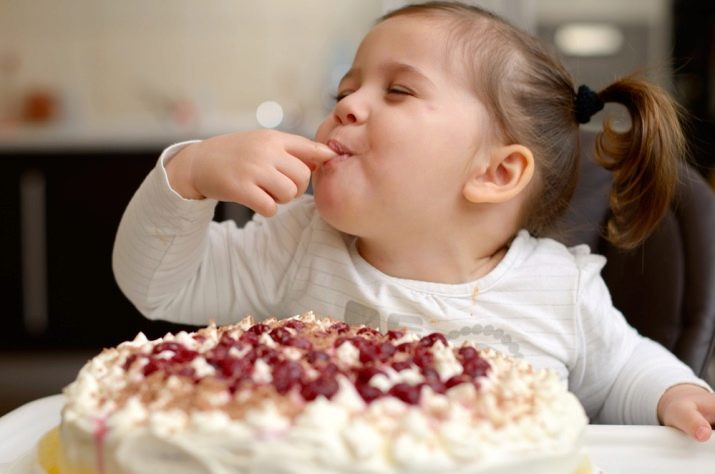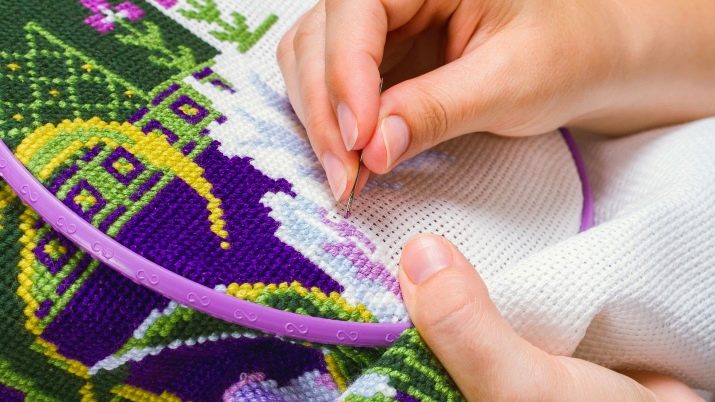Reasons for seizing stress and how to break the habit

Sometimes people begin to eat heavily not in order to satisfy hunger, but to satisfy their psychological needs. In this way, many try to reduce the level of stress in a stressful situation. Absorbing food is the most affordable and acceptable way to deal with stressful situations and enjoy.
Causes of the habit
In moments of intense excitement or stress, the human body begins to produce cortisone, whose task is to eliminate bad mood. When a person is nervous or sad, he can compensate for the lack of positive feelings with food. Uncontrolled food consumption becomes a kind of response to negative emotions.
Mental attitudes are often provoked to seize stress: psychological prohibition on food addiction, division into harmful and healthy foods, increased calorie counting. Swallowing food most often occurs automatically. Subject may not notice eating a whole cake in one sitting. In this way, people switch their attention from some urgent problem.
Trying to relieve tension with food is the body's defensive response. During a period of emotional experiences, a person wants to eat a delicious dish. The process of digesting food turns off the human brain from all problems. It brings the subject the desired tranquility.

Men salty or crunchy foods are usually preferred. For example, representatives of the stronger sex may become addicted to the consumption of chips during times of stress.But in general, active eating of certain foods depends on the individual physiological characteristics of the subject, on his personal preferences and preferences.
Overeating may be due to micronutrient deficiencies. Magnesium levels decrease during stress. The frustrated person begins to consume a huge amount of vitamin C. For this reason, the subject wants to constantly consume high-calorie foods. Addictiveness gradually occurs. Lack of such food may render the subject depressed.
Usually, the habit of overeating begins to form in childhood. A crying baby is saturated with mother's milk and immediately calms down. Although the cause of crying can be cold, heat or other state of discomfort, the parent is in a hurry to calm the baby down with food. Thus, a link is formed in the psyche of a little man: "stress - food".
A frustrated grown-up child seeks to fill his stomach with some kind of sweet product: candy, cake, a piece of cake, chocolate, ice cream. A tasty dish smoothes the anxious feeling of loneliness, compensates for the lack of attention and love. In the future, an adult tries to look for vivid taste sensations when seizing his emotional experiences.

Effects
Releasing nervous tension with delicious food contributes to the development of addiction. It is very difficult to overcome the emotional attraction to food consumption on your own.
Seizing stress can lead to metabolic disorders, which often results in obesity. Gaining excess weight can provoke various diseases. Due to the increased stress on the joints, the musculoskeletal system suffers. Most well-fed people have deformities of the vertebrae, feet, knees, hip and other bones.
Excessive consumption of sugar and flour products can negatively affect the production of insulin by the pancreas. In this case, the likelihood of developing diabetes increases. In people suffering from overeating, the work of internal organs worsens. There are malfunctions in the functioning of the cardiovascular system, gastrointestinal tract, kidneys and liver. Depression caused by health problems can plunge an individual into deep depression.
Food addiction without the goal of satisfying natural hunger leads a person to anxiety and anxiety. On an unconscious level, a sense of guilt is formed. Fatigue and nervousness build up. A person gradually loses control over himself and various situations.

What to do?
Begin to see your meal as a way of survival, not a source of pleasure. You need to immediately stop consuming chips, crackers, sweets between breakfast, lunch, afternoon tea and dinner. Replace mental stress seizure with good habits.
Hobby
You can stop eating a lot with your own hobby. Embroidery, knitting, wood carving, painting, modeling, reading, singing, and other creative pursuits distract the subject from excessive food addiction.

Diary
Start keeping a food diary of emotions. Record the number of meals consumed in it. Write down the date, time, and circumstances under which you loaded your stomach. Be sure to evaluate your emotional state at the time of eating. Pay attention to important details: were you hungry then, upset, angry, or tired.
Carefully analyze any causes of snacking throughout the day. The entries in the diary will allow you to understand what exactly you need to work with. Unexpectedly, you’ll find it’s important to learn how to deal with boredom, irritation, or anger in a different way when dealing with overeating.

If, after stressful situations, you run not to the refrigerator, but after a diary in order to fix the manifestation of your own emotional instability, then over time you will be able to get rid of overeating forever.
Diet correction
Monitor the amount of food eaten daily. Eliminate foods that are most harmful to your body from your diet. Limit your intake of sugary and fatty foods. Chew food thoroughly during your meal. Store small amounts of food in the refrigerator. Do not carry candy or cookies with you. Replace with fresh fruit.
Do not get carried away with diets. Don't force yourself to starve. Malnutrition can trigger the development of disease. Better set a fractional diet. Take food every 3-4 hours. Give preference to seafood, fruits, vegetables, oatmeal, low-fat cottage cheese, unsweetened yogurt, kefir. Replace snacks with water intake. The liquid fills the stomach and creates a feeling of fullness.

Physical exercise
Walks in the fresh air, trips to nature, travel to cities and countries, physical activity distract from emotional experiences. Exercising can help you lose weight. Daily jogging significantly improves emotional well-being. Fitness helps to relieve boredom and gloomy thoughts. Due to muscle tension, complex carbohydrates begin to rapidly break down and extract additional energy flows.
Vigorous activity pushes all problems to the background. Peace of mind reigns in the soul. The need to seize stress is eliminated by itself.

Cold shower
Dousing with cool water is of great benefit to the body. A person receives a huge boost of vivacity and a surge of energy. Due to the production of adrenaline, blood pressure increases. The heart begins to pump blood rapidly. The duration of the shower should be 3-4 minutes.
Hypothermia is not recommended. Otherwise, the immune system will begin to weaken.

Aromatherapy
A hot bath, to which a few drops of any aromatic oil is added, helps to cope with stress.... The aromas of lemon, orange, lavender, chamomile, pine needles have a positive effect on the psyche of the subject. Fragrant foam allows the body to completely relax and relieve fatigue.

other methods
Try a variety of tricky tricks.
- Start using your other hand while eating. Let the right-hander act with his left hand, let the left-hander try to use the right hand. Create various inconveniences for yourself during your meal.
- Use items of red color. Get a crockery, apron, kitchen towel, or potholder in a red tone. The brain will perceive it as a sign that signals a stop. This kind of stop light allows a person to get rid of overeating.
- Get in the habit of smiling more often. Even an artificial smile promotes the production and active assimilation of serotonin. A smiling person becomes more relaxed about stressful situations. The smile that has entered the subject's life, even in a very bad mood, significantly reduces the risk of stress.
- Singing helps to overcome emotional distress. It even relieves chronic depression. In order to eliminate negative emotions, experts recommend singing loudly. You can go with friends to a karaoke bar. Sing alone with yourself in the shower, taking care of soundproofing in advance.
- Watching comedy movies is a great way to relieve stress. Good humor always cheers up. You can watch your favorite cartoons, melodramas or other films with a good ending.

Psychologist's advice
To help yourself in stressful situations, you should heed the advice of a psychologist.
- Don't expect the problem to be solved naturally. You should not prescribe a diet to yourself. It does not always lead to weight loss and removal of a psychological disorder. Improper dietary restriction can lead to serious problems. Sometimes the disease requires the intervention of a psychologist and nutritionist. In case of a severe form of the disease, the doctor may prescribe medication.
- In order to reduce the concentration of cortisol, provoking feelings of fear and anxiety, experts recommend drinking plain water. Several glasses of cold liquid can significantly reduce the concentration of cortisol in the blood. Green tea soothes well. It contains phytoncides that help reduce the excitability of cells in the nervous system.
- You can cheer up with a small piece of chocolate. It increases the level of serotonin in the blood. Thanks to him, the subject acquires the ability to concentrate in a difficult situation. Experts recommend the consumption of any product containing cocoa. Drink a serving of hot chocolate, but do not add sugar to it. You can dip a few mint leaves into a glass of hot chocolate, which is a wonderful sedative.
- You shouldn't berate yourself for the breakdowns. Learn to recognize and understand your own emotions. Listen to your inner voice, establish a dialogue with your body. Spiritual practices help to maintain inner peace. Make frequent outdoor walks, trips to nature. Visit museums, theaters, gyms. Stick to your daily routine. Normalize your sleep and rest. Listen to pleasant music.
- Communication on neutral topics brings the human nervous system back to normal. Chat with friends, relatives, acquaintances. Pour your soul out to them. Participate in various forums. Take advantage of free consultations of psychologists on various sites.
Don't be alone with your problem. Control your own condition. Don't give in to negative emotions.








